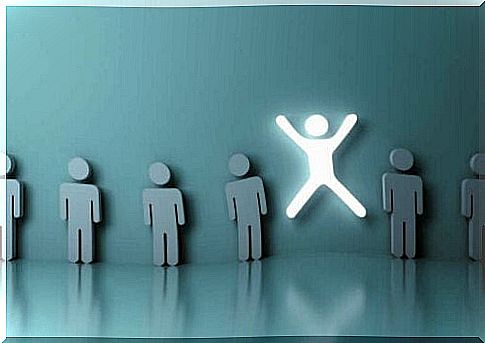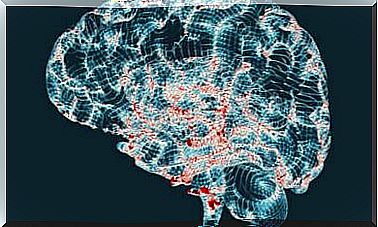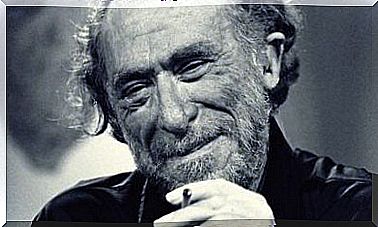Is Being Different A Need, A Burden Or A Virtue?

Every person is unique. No one is the same. We all have different ways of feeling, acting, thinking and making decisions. A combination of genes and environmental factors, your past history, your experiences and your context, are among other things that make up your personality. What does it mean to be different for you?
Being different can be positive or negative, depending on where you are in life and what stage of development you are in.
Despite the fact that you are, and always will be, completely unique, there are moments in life where you try to be as similar to other people as possible. Other times, it is important for cognitive development to make yourself stand out. How do you feel about this right now? Do you think that you are different from everyone else? In what way? Do you like to be different? Is it important to you?

Being different is a human need
Psychologist Margaret Mahler came up with a model for the stages of human development. After the symbiotic phase, where the child is not yet fully able to see himself as separate from his mother, comes the separation-individualization stage. This stage plays an important role in shaping your personality and helping you to consider yourself unique.
During this stage, two processes take place. Separation is the process by which a child differentiates itself from its mother. Individualization is the process by which a child is aware of his or her own existence and begins to develop his or her own individual traits.
Rene Spitz noted three organizational principles in child psychology: the smile response, the fear of strangers, and “no”. The “No” is the famous age of trouble. Although constant opposition is annoying, it is an important stage for maturation and development.
This constant negative response comes from the fact that the child has begun to identify himself as different and independent. It is a necessary step for the child to become aware of his own individuality. This also happens to a certain extent with young people.
For teens, being different can be a burden
Youth is a stage where fitting in and being just like everyone else is the most important thing. Teenagers are constantly worried about being discriminated against for differences that are “unacceptable”. Being part of a group is the main motivation for teenagers. Thus, it has a significant impact on how they shape their self-concept.
Oddly enough, teens still think they are unique. David Elkind called this phenomenon “personal fable”. Although they long to fit in and be like everyone else, teenagers also believe that their thoughts and feelings are different from everyone else’s.
Elkind describes another phenomenon that sometimes relates to the importance of being different or fitting in. He’s talking about an imaginary audience, which is an intense concern for the image you show others and what they think of you. Teenagers tend to think that those around them see them constantly.
This feeling of always being the object of others’ attention means that some teenagers, especially those with low self-esteem, do everything they can to fit in. They try to go unnoticed and not be different because being different is considered negative and can lead to rejection from their like-minded people.

It is not a need or a burden – it is a virtue!
Young people often feel the need to be different, to stand out in the crowd. It’s great! Sharing the part of your identity that shapes you is one of the best gifts you can give yourself and others. This is because it is the most sincere and honest part of who you are. It also promotes creativity and facilitates decision making.
Being different allows you to appreciate diversity and adapt to it more easily. It makes you flexible and open-minded.
Defending your ideas, even if they are different from everyone else’s, allows you to grow and develop while being principled. It helps you build your self-esteem and self-confidence as well. Being unique is a gift. Therefore, it is important to learn to appreciate it. It is one of the greatest virtues a human being can have.









